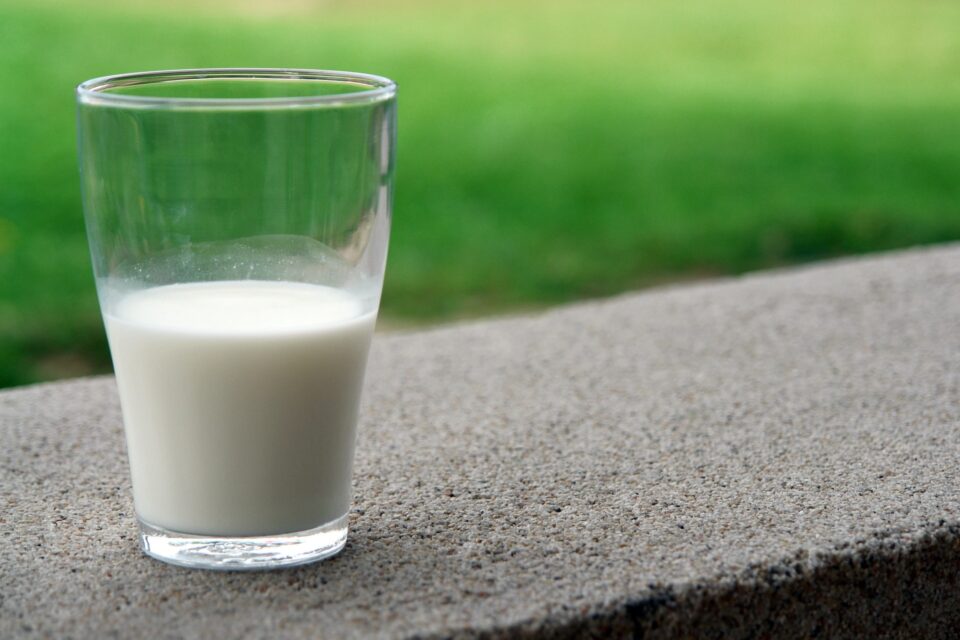Calcium is a mineral that is most commonly linked with strong bones and teeth, but it also aids in blood clotting, muscular contraction, and the regulation of normal heart rhythms and neuron activities. About 99 percent of the calcium in the body is stored in bones, with the remaining 1% in blood, muscle, and other tissues.
The body works to maintain a constant level of calcium in the blood and tissues in order to accomplish these essential everyday processes. When blood calcium levels go too low, parathyroid hormone (PTH) signals the bones to release calcium into the circulation. This hormone may also activate vitamin D, allowing for better calcium absorption in the intestines. PTH also instructs the kidneys to release less calcium into the urine. When the body has enough calcium, a hormone called calcitonin works in the other direction, lowering calcium levels in the blood by inhibiting calcium release from bones and directing the kidneys to excrete more of it through the urine.
Calcium is obtained in two ways by the body. One way is to consume calcium-rich foods or supplements, and the other is to draw calcium from the body. The body will eliminate calcium from bones if you don’t eat enough calcium rich foods. The calcium that is “borrowed” from the bones should, in theory, be replaced at a later date. However, this does not always occur, and it is not always possible to achieve simply by eating extra calcium.
Recommended Amount of Calcium intake
The Recommended Dietary Allowance (RDA) for calcium for women 19-50 years of age is 1,000 mg daily; for women 51+, 1,200 mg. For pregnant and lactating women, the RDA is 1,000 mg. For men 19-70 years of age, the RDA is 1,000 mg; for men 71+ years, 1,200 mg.
Health Benefits of Calcium
- Blood Pressure

A probable relationship between total calcium consumption from food and supplements and blood pressure has been indicated in several research studies on the topic. However, issues with these analyses’ study designs (small numbers of participants, differences among the people studied, and various biases in the types of studies included) prevent a new recommendation for the treatment of high blood pressure that would increase calcium intake above the Recommended Dietary Allowance. [2] Larger, longer-term studies are needed to determine whether increasing calcium consumption or calcium supplementation can help to decrease high blood pressure.
- Cardiovascular Diseases

Calcium supplementation and heart health have been linked in several studies. Calcium supplementation raised the risk of cardiovascular events in both men and women, according to these studies. High-dose supplements may produce hypercalcemia (an abnormally high level of calcium in the blood), which can cause blood to clot or arteries to stiffen, resulting in cardiovascular disease. Although the link is unclear, a clinical guideline published by the National Osteoporosis Foundation and the American Society for Preventive Cardiology after a review of the available research concluded that calcium from food or supplements has no relationship (beneficial or harmful) to cardiovascular disease in generally healthy adults. The upper limit for calcium is not to be exceeded, according to the guidelines.
Also Read : Gut Health and how to maintain it properly for a Healthy Lifestyle
- Bone Health

One of the most critical nutrients for bone health is calcium. Bone is a living tissue that is constantly changing. Bones are regularly broken down and rebuilt during one’s life, a process called remodeling. Osteoblasts produce bone, but osteoclasts break down bone when calcium is required. Up until roughly the age of 30, bone creation outnumbers bone breakdown in healthy people who get enough calcium and exercise. Following that, destruction usually outnumbers production. This is known as “negative calcium balance,” and it can cause bone loss.
Menopause, a disorder that reduces the quantity of hormones that help to form and preserve bone, causes women to lose more bone later in life than males.
At any age, getting enough dietary calcium may help to slow the rate of bone loss, but calcium intakes at any level have not been shown to completely prevent bone loss. Because calcium is less easily absorbed as people get older, ingesting a lot of it will not necessarily address the problem
Calcium intake and bone density in postmenopausal women have yielded varied outcomes in studies. Reasons for this could include:
The study only looked at calcium intake from a supplement given to the subjects; it did not take into account calcium from the diet or estimate total calcium consumption from food and supplements.
The study did not account for or track whether women were using hormone replacement therapy or other vitamin supplements, such as vitamin D, that might reduce bone density.
Because increased calcium intakes (typically obtained by supplementation) were linked to enhanced bone density and a reduced incidence of hip fractures in some big trials, the RDA for calcium for postmenopausal women is higher than for younger women.
Some research suggest that supplements may assist frail elderly (those aged 80 and up who live in institutions) more than “younger” elderly who live independently in the community.
The US Preventive Services Task Force found no evidence that calcium and vitamin D supplements used for up to 7 years reduced the risk of fractures in postmenopausal women in a 2018 evaluation of randomised controlled trials. At the outset of the trial, none of the women had osteoporosis or vitamin D deficiency, and they lived independently in the community. The calcium supplements contained 600-1,600 mg of calcium per day.
Colorectal Cancer:

High calcium intakes (from food and/or supplements) appear to protect people from colorectal cancer in epidemiological studies that track people over time.
Randomized controlled trials utilizing calcium supplements with and without vitamin D, on the other hand, have yielded mixed outcomes. One factor could be the short duration. Clinical trials are often shorter in duration than epidemiological research due to higher costs and the difficulties of maintaining participant participation. However, colorectal cancer can take 7-10 years or longer to develop, and these trials may not detect any alterations in the colon during that time.
According to a Cochrane review of two well-designed double-blind placebo-controlled trials, taking 1,200 mg of elemental calcium daily for nearly 4 years reduced the incidence of new colorectal adenomas by 26% in individuals, some of whom had previously had adenomas. [9] An adenoma is a benign tumor that has the potential to become malignant.
For almost 7 years, 36,282 postmenopausal women were given two doses of 500 mg elemental calcium and 200 IU vitamin D, or placebo, in a randomised double-blind placebo-controlled experiment from the Women’s Health Initiative. There was no difference in the incidence of colorectal cancer between the two groups, according to the study.
Calcium Rich Food Sources

Calcium is widely available* in many foods, not just milk and other dairy foods. Fruits, leafy greens, beans, nuts, and some starchy vegetables are good sources.
- Dairy (cow, goat, sheep) and fortified plant-based milks (almond, soy, rice)
- Cheese
- Yogurt
- Calcium-fortified orange juice
- Winter squash
- Edamame (young green soybeans); Tofu, made with calcium sulfate
- Canned sardines, salmon (with bones)
- Almonds
- Leafy greens (collard, mustard, turnip, kale, bok choy, spinach)
Further Reading :




